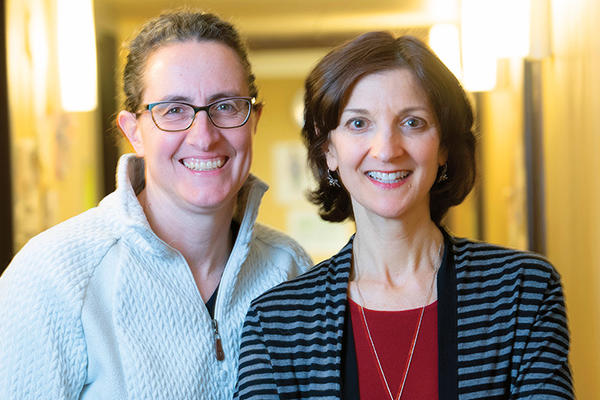Supporting the health of climate-displaced communities
(March 2019) News from the Center for Child and Family Health Promotion Research.
March 21, 2019

While contributing minimally to human-induced climate change, Africa is geographically among the most vulnerable to its effects, while generally lacking adequate capacity to mitigate the impacts. Less prominent in the literature is the discussion of ways communities engage in strategies to support the cultural, physical and psychosocial health of its members in the face of climate-related displacement. The internal processes of self-determination, identity preservation and healing will be critical to manage and strengthen communities in the face of the destabilizing effects of climate change, and, ultimately, to minimize inter-community conflict in the coming decades.
Professor Cheryl Robertson, PhD, MPH, RN, FAAN, served as PI with Kenyan and Ugandan nursing and veterinary researchers Jacinta Waila, Shamilah Namusisi and Michael Mahero using ethnographic methods in Turkana County, Kenya to better understand the human experience of climate change, resource-driven conflict and displacement. Robertson, as co-PI, and team joined with Dominic Travis (co-PI, Veterinary Medicine) to build on the Turkana findings in the neighboring Karamoja District, Uganda. Pastoralist communities living in these semi-arid lands have already lost most of their livestock from drought, floods and violent raids. Analyses suggest a complex story of drought, violence, livelihood loss, migration, policy, emerging extractive industries, population pressures, ethnic and refugee tensions, hunger, opportunity, and, of course, resilience. The purpose of both studies is two-fold: first, to support East African research capacity and leadership; second, to grow our multicultural, multidisciplinary academic and multisectoral partnerships to develop a program that can ultimately improve the health and resilience of climate-displaced communities.

